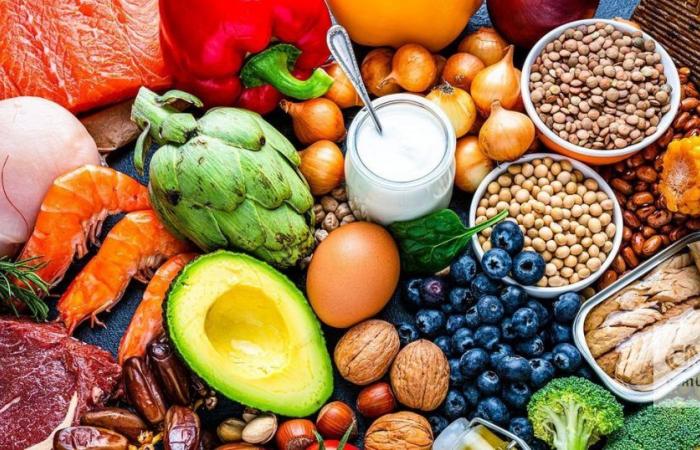Jennifer Rolling, founder of The Eating Disorder Center, highlights the importance of questioning your food choices, suggesting three crucial questions to assess whether your diet is restrictive
There are many reasons why many health professionals are against a restrictive diet.
Restrictive diets are a way of eating that reduces calories below someone’s energy needs and/or limits the macronutrients or food groups a person eats, said Jennifer Rollin, founder of The Eating Disorder Center in Rockville, Maryland.
These diets are not sustainable, Rollin said. A person may not meet their caloric and nutritional needs, or it may encourage binge-eating behaviors and can lead to unhealthy relationships with food and their body, she said.
But how do you know when a diet is restrictive or when you are simply making choices with health or longevity in mind?
There are good control rules. If you feel like you’re basing your choices on the hope of losing weight or if your diet excludes entire food groups, you’re probably on a restrictive diet, said Natalie Mokari, a registered dietitian in Charlotte, North Carolina.
In cases that aren’t so clear cut, here are three questions to ask yourself about your diet, according to Rollin and Mokari.
How often are you thinking about food?
One way to evaluate your diet is to see how much you are thinking about food.
With a health-conscious lifestyle, you may be able to eat what your body needs and keep going. But when you’re on a restrictive diet, people tend to obsess about what they ate, what they’re going to eat and how ashamed they feel after they’ve eaten it, Mokari said.
Restriction can make social events less fun and meals less satisfying, and figuring out how to eat can become a full-time job.
“It starts to be a kind of excessive consumption for someone in their day-to-day life, and it inhibits their pleasure,” she said. “It can create a lot of obsessive behaviors. … Food is not meant to be thought of that way.”
What is its degree of rigidity?
Another good indicator is how flexible you are with the eating style you’re following, says Rollin.
“There’s a difference between a food preference or a way of eating that makes someone feel good and a set of strict rules that have to be followed,” he says, adding that these mandates are often accompanied by guilt and shame.
There are certain health conditions where a food has to be eliminated entirely, but if not, can permission be given to approach the food in question in a more balanced way, Rollin asked.
For example, if you are trying to limit cheese – are you saying that you will never eat cheese again, or you can feel free to add fruits, vegetables and nuts to the charcuterie board along with the cheese so that you eat less ?
“Instead of looking at what you can cut,” says Rollin, “look at what you can add.”
Can you eat just a little?
With her clients, Mokari likes to use the 80/20 rule — 80% of the time she focuses on eating all the foods needed for a given diet or health issue and 20% of the time there is more permissiveness, she said.
And that’s not just to leave room for fun. This approach also helps move away from a restrictive mindset.
“If we put all these rules around certain foods, we will feel either feast or famine with those foods,” he says.
Feeling unable to control yourself around certain foods could be a sign that you’re being too restrictive in your diet, says Rollin. And this can be physically limiting by not allowing yourself to eat the food or mentally restricting by embarrassing yourself while eating it and afterwards, he added.
The desire to eat foods that aren’t always available is evolutionary, Rollin said. Human bodies are primed for times of famine to consume as much as possible when we find our next food source, she said.
Distancing yourself from restriction
If you want to make food decisions with your health in mind but want to end restriction, Rollin and Mokari recommend working with healthcare professionals to understand exactly what it means to do so.
Some people, both online and offline, claim to have the secret diet for treating health problems, so it’s important to work with your doctor, a nutritionist and/or an eating disorder therapist to determine what is healthy for you and what it’s part of diet culture, Rollin said.
It may also be helpful to see doctors who are weight-neutral or who use a “Health at Every Size” approach, Mokari added. This type of medicine looks at health as a whole and does not focus on size or body mass index as a primary measure of a person’s well-being, according to the Association for Size Diversity and Health.
And if we’re in a restrictive diet situation where it’s hard to stop when we start eating a certain food we consider unhealthy, the answer may be to give ourselves permission, Rollin said.
“At the beginning of the pandemic, when toilet paper was limited, what did everyone do? They ran out and ordered toilet paper, right?
The goal is to eliminate the mystique of demonized foods so you can make choices based on what your body needs and not what your brain is afraid it won’t be able to get again.
However, there are health problems, such as allergies, in which foods must be completely eliminated. In these cases, be sure to follow your doctor’s advice, warned Rollin






